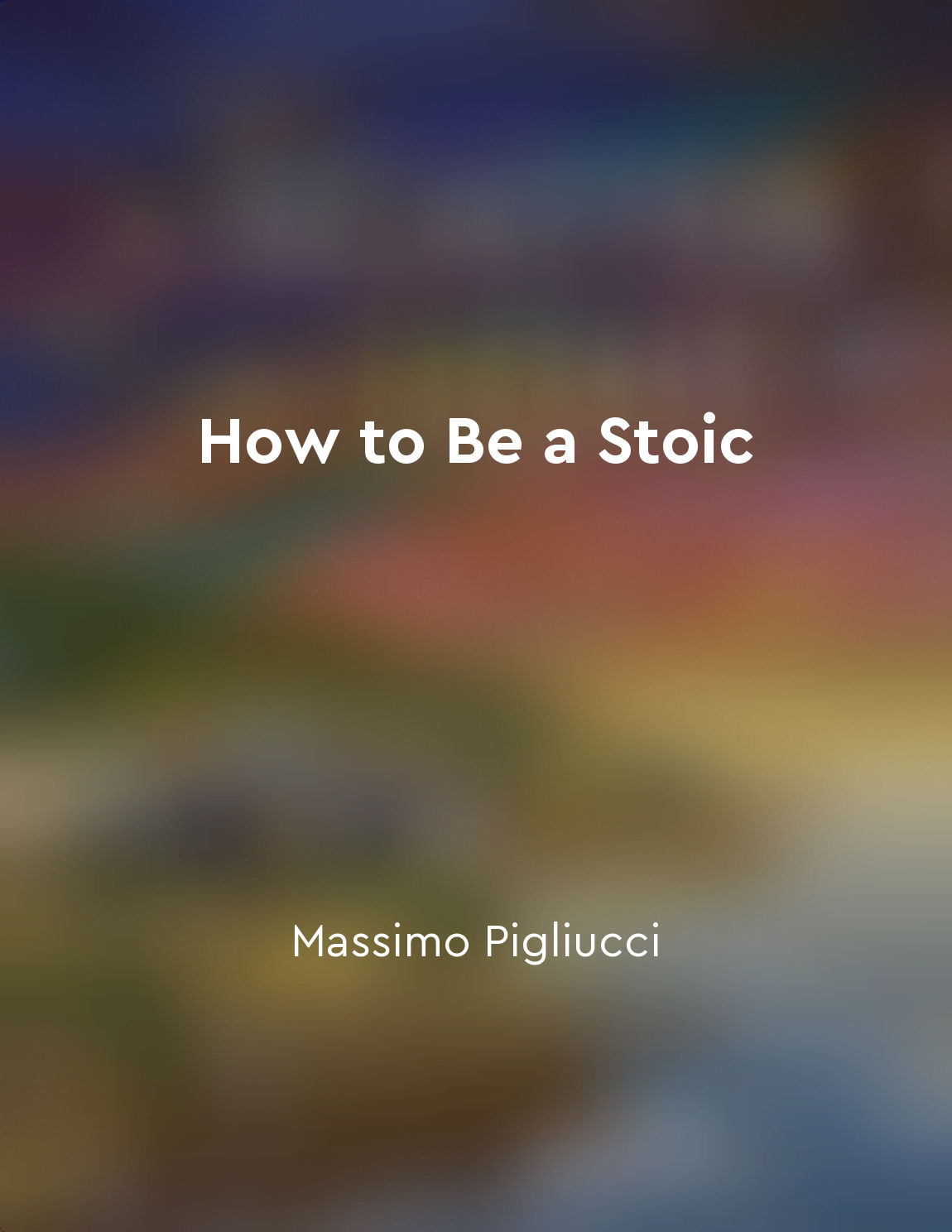Practice selfdiscipline and moderation from "summary" of How To Be a Stoic by Epictetus,Seneca,Marcus Aurelius
Self-discipline and moderation are fundamental principles in the practice of Stoicism. These virtues are essential for maintaining a balanced and rational approach to life's challenges. Epictetus emphasizes the importance of self-discipline in controlling our desires and impulses. He believes that by exercising self-discipline, we can avoid being swayed by our emotions and make decisions based on reason rather than passion. Moderation, on the other hand, is about finding the right balance in all aspects of our lives. Seneca warns against excesses and urges us to practice moderation in our actions an...Similar Posts

Virtue is the highest good in Stoic philosophy
According to the Stoics, the highest good in life is virtue. This concept lies at the heart of their philosophy, guiding their ...
The Greek citystates were often at odds with each other, leading to internal conflict
The Greek city-states, small and independent, were like children constantly squabbling over toys. Each one believed itself to b...
Practice resilience in the face of obstacles
Resilience in the face of obstacles is a key tenet of Stoic philosophy. The Stoics believed that challenges and setbacks are an...
Stoicism originated in ancient Greece
The origins of Stoicism can be traced back to ancient Greece, where it emerged as a philosophical school of thought in the earl...

Cultivate gratitude and appreciation for life's blessings
The Stoics were big on gratitude. They believed that cultivating a sense of appreciation for the good things in our lives is es...

Stoicism encourages us to embrace hardships as a means of personal development
Stoicism teaches us to view hardships not as obstacles to be avoided, but as opportunities for growth and self-improvement. Ins...

Virtue is the only true good in Stoicism
In Stoicism, the fundamental idea is that virtue is the sole good. This principle is central to the Stoic philosophy, guiding e...

Seneca discusses the role of adversity in shaping character
Seneca and Marcus Aurelius both emphasize the importance of adversity in the formation of one's character. They argue that it i...

Accepting things as they are is key to inner tranquility
The Stoics believed that one of the main sources of our mental suffering is our resistance to the way things are. They argued t...
The Stoic philosophy is a practical guide to living a meaningful life
Margaret Graver's exploration of Stoicism in "Stoicism and Emotion" reveals a philosophy that offers practical guidance on how ...
